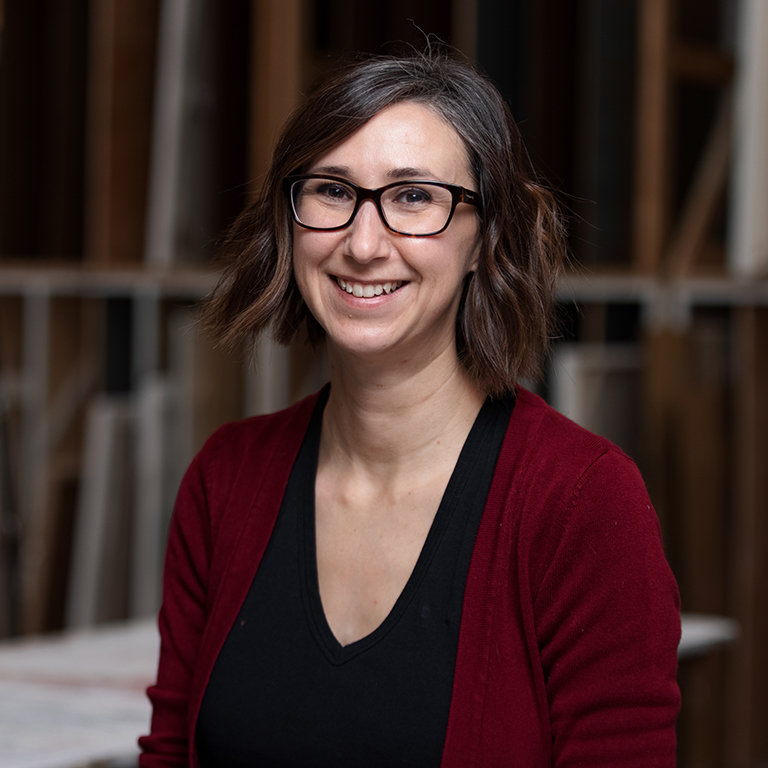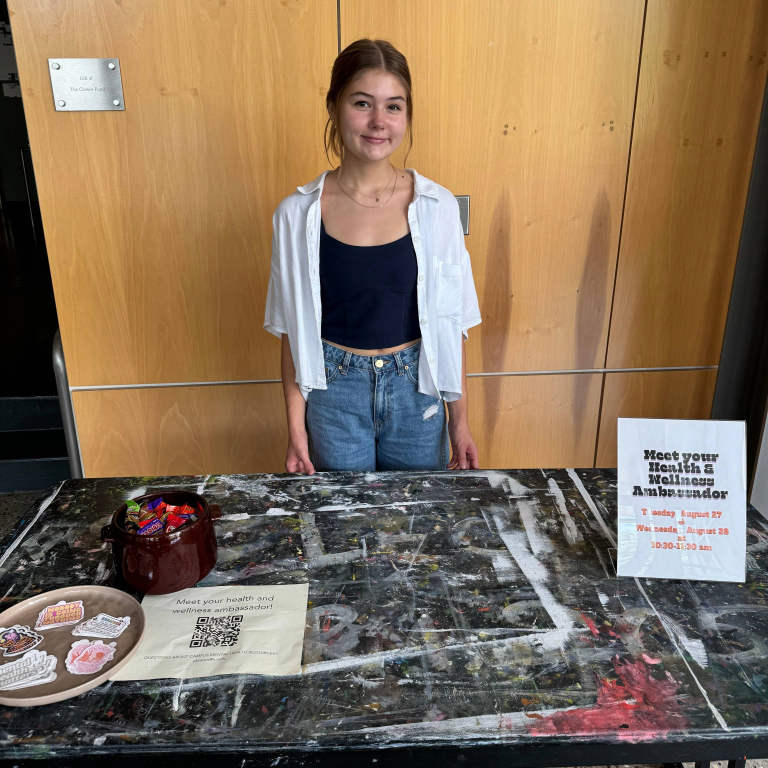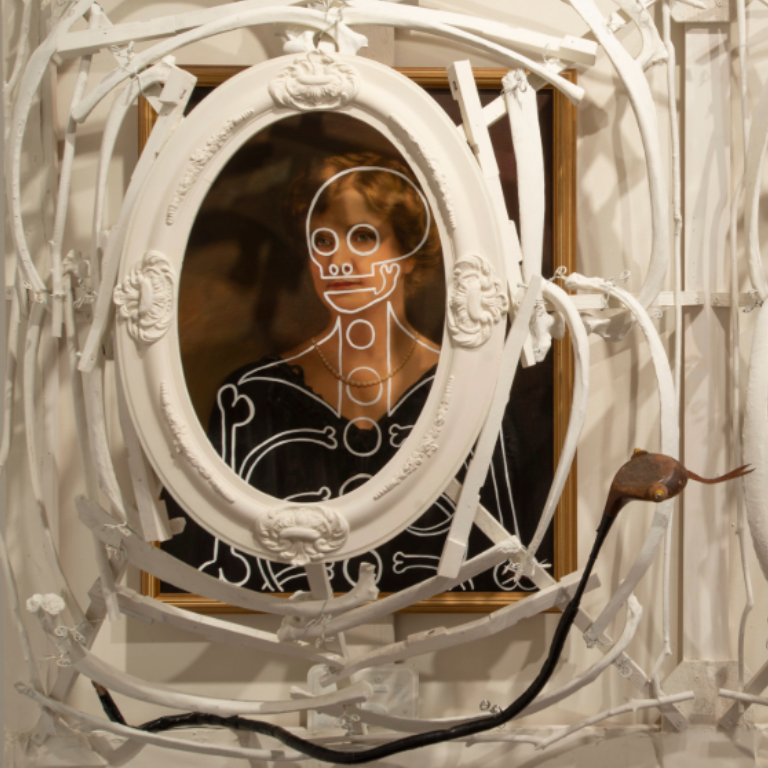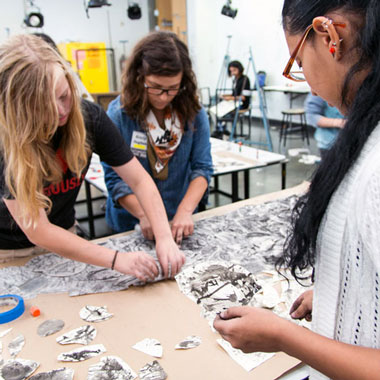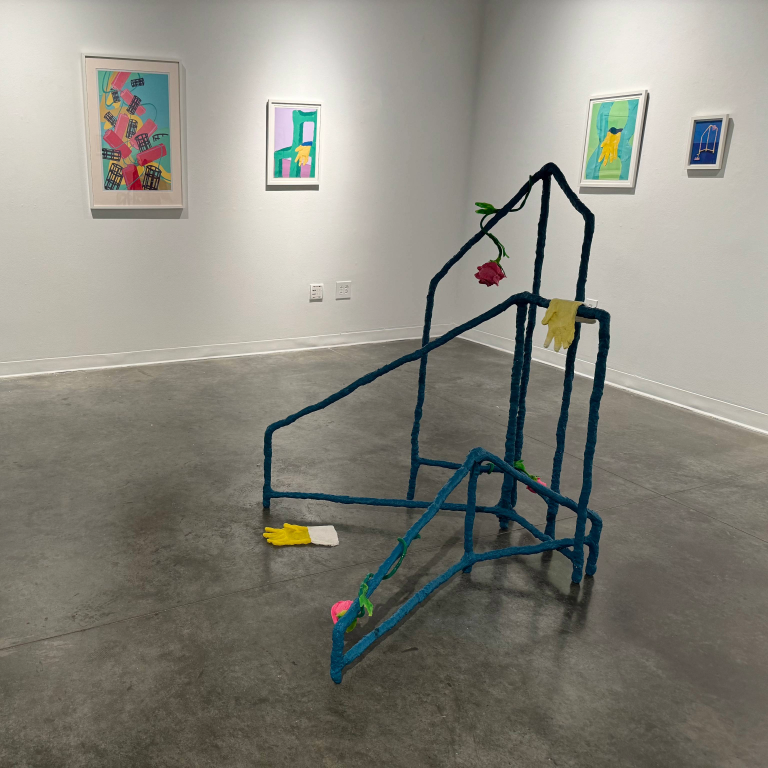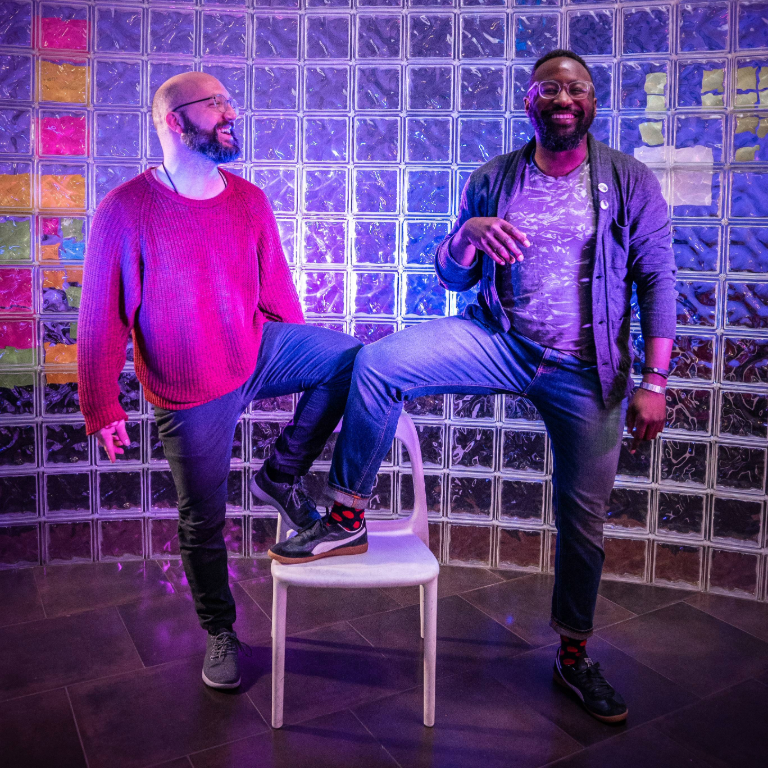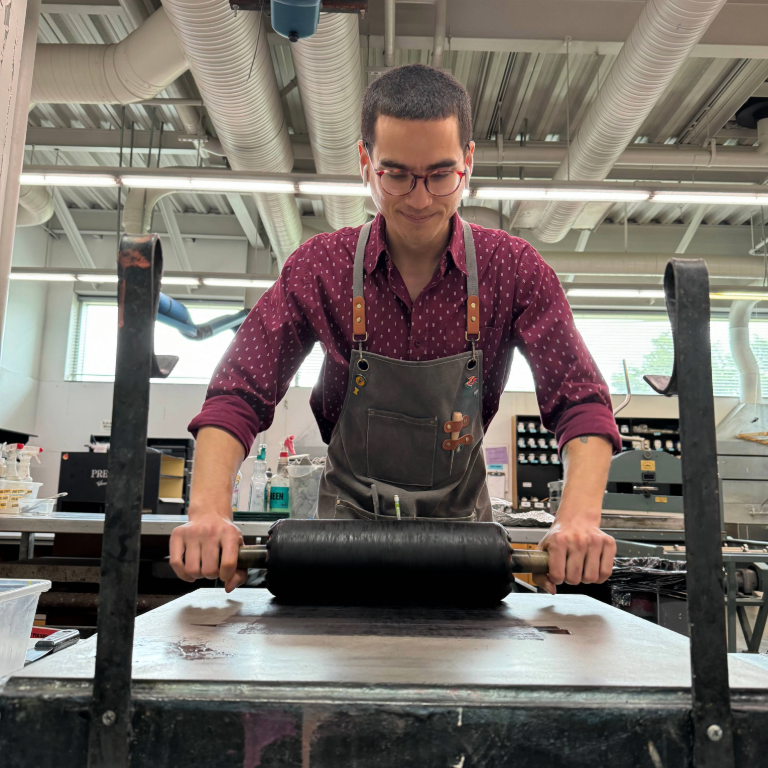Whether in your first or final year of college, it's never too early to start thinking about your career options. Michelle Winkelman, Herron's associate director of career development, shares this viewpoint.
Winkelman works in our Office of Admissions and Student Services. She advises students, coordinates internships, organizes career development events, strengthens employer relations, and collaborates on career development and professional practice initiatives.
Most importantly, she serves as a vehicle for assisting Herron students in achieving their career goals. So, as we begin another academic year, we're putting her front and center in a Q&A to show off everything she has to offer.
HERRON: What do you wish students or parents understood about the current job market and the creative economy?
MICHELLE WINKELMAN: The number one thing I wish more people knew was that there is no singular way to be an artist, designer, art educator, art historian, or even an art therapist. Creatively trained people are found in virtually every industry because creativity consistently ranks among the top skills sought by employers across all sectors. Yet there is a myth that finding work with an arts background is challenging.
I believe this misconception persists because the typical image of what it looks like to be a successful creative professional is only the reality for a few people. But that does not mean that all other creative professionals are unsuccessful, far from it. It just means that we are not surrounded by enough images representing the diversity of what it looks like to be gainfully employed in art and design.
Some paths look like 9-to-5 jobs, and some involve combining various activities and income sources. There are pathways with more security and others that involve significant risk. This is true in other fields, too. We simply need more awareness of the myriad ways in which people with art and design degrees shape their careers and contribute to society.
Because of the critical thinking, innovation, and problem-solving skills at the heart of these practices, the value of a degree in art or design is substantial. These skills are infinitely transferrable, and you'll use them throughout your career.
What is exciting to me about the creative economy, as a concept, is increasing the visibility of the contributions of creative professionals. There is a link between the prolonged undervaluing of the arts and the lack of visibility. I want to expose Herron students to more career pathways for their benefit. I also view this as important work from an arts advocacy standpoint.
HERRON: What kind of assistance can Herron students get?
WINKELMAN: The primary service I provide is individualized career advising. I meet with students one-on-one to help them throughout their career journey, from exploring what careers they might want to pursue to negotiating a job offer or anything in between. Students can set up an appointment with me the same way they do with their academic advisor.
There are other ways I assist, aside from advising. I maintain resources, such as how-to guides, self-assessment tools, and lists of industry-specific job boards and professional organizations. I meet with and build relationships with employers in Indianapolis to create opportunities for our students to connect with them. I organize and promote events like workshops, panel discussions, and job fairs. And I work with faculty on Herron's professional practice courses, teaching career development skills such as resume writing and job searching strategies.
HERRON: What do you find most gratifying about helping students look for internships and jobs?
WINKELMAN: I genuinely love helping people, so anytime a student gets a new idea or feels more confident because of something I've said, it's rewarding.
I could have benefitted from more career advice while in school, and it took me a little while to figure out which direction to go. That experience inspires me to help make the post-graduation transition smoother for Herron students and to help them feel more prepared to navigate those early career decisions. And, of course, it's a huge celebration moment when someone follows up with me to let me know they got that job or internship they really wanted.
HERRON: What common questions do students typically have?
WINKELMAN: The questions are usually around alignment for students who aren't sure what they want to do. "How can I take my various interests, skills, and needs and find a career path that brings them together?" I love these conversations because they include some big topics like purpose and personal values.
For students who have already determined the path they want to take, the questions tend to be more tactical or practical. We might develop some networking strategies, work on making their resume more effective, or talk about how to curate their portfolio. I might point them toward a couple of organizations or companies they haven't yet considered. What I love about these conversations is that sometimes it just takes one or two small steps to get someone rolling on their career goals.
HERRON: Do you also advise those thinking about pursuing graduate studies?
WINKELMAN: Yes! For many, graduate school is an essential step in their career advancement. Like any career decision, I think pursuing graduate studies should be intentional and align with long-term goals. Since it's often a significant investment, it's critical to determine if it makes sense for the student and if it's best to do it right away or pursue it later. I can help students work through that decision and help those who do decide to pursue an advanced degree prepare for the next steps.
HERRON: Do you offer alums any professional development resources or services?
WINKELMAN: I provide career advising at no cost to Herron alums, who also have access to IUPUI's job board, Handshake. I'm also working on creating more professional development programming for our alums. Alumni are key partners in strengthening Herron's career services, and I want to ensure that Herron continues to support them as they advance in their careers.
Use the Student Appointment Scheduler (SAS) portal to make an appointment with Michelle Winkelman. She can also be reached by email at miwink@iu.edu or by phone at 317-278-9478.


